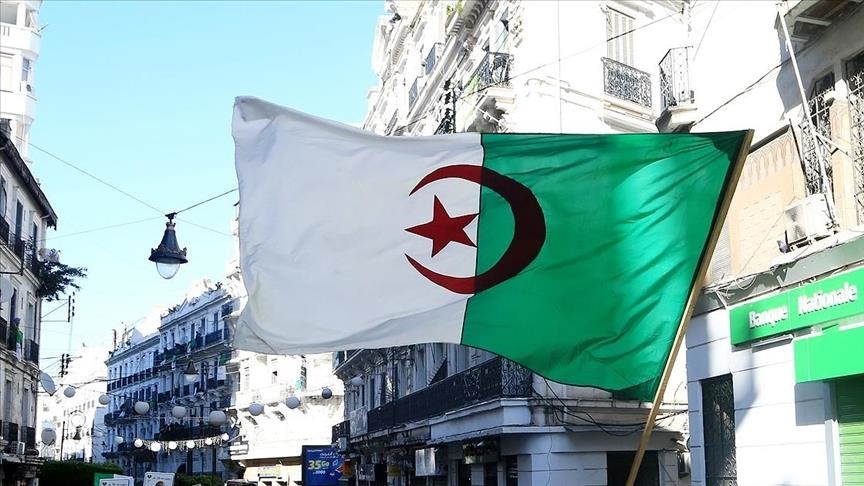Algeria’s largest Islamic party eyes national unity gov’t
Party believes it is in pole position to win June 2 parliamentary elections

ALGIERS, Algeria
Algeria’s largest Islamic party, the Movement of Society for Peace (MSP), says it is in pole position to win in the country’s upcoming parliamentary election slated for June 12.
In an exclusive interview with Anadolu Agency ahead of the polls, party leader Abderrazak Makri said he will seek to form a national unity government if his party wins a majority of seats in parliament.
A total of 1,483 candidates are vying in the race, including 646 from 28 political parties and 837 independents, to win seats in the 407-member parliament.
In March, Algerian President Abdelmadjid Tebboune issued a decree calling for early parliamentary election on June 12, less than a month after dissolving the People's National Assembly, the lower house of parliament.
A constitutional amendment in November 2020 stipulated that the party or bloc that wins a majority of seats in parliament has the right to lead the government.
Previously, the president had the authority to appoint the head of government irrespective of whether he/she is from the party with a majority in parliament.
Unity government
Makri said that initial indicators show that his party is leading ahead of the election.
“MSP has launched the strongest campaign for the polls and enjoys wide acceptance among the population,” he said. "Our movement is the only party that has a strong and stable structure throughout the national territory and enjoys a broad acceptance within the society.”
Makri, however, pointed out that his party will “call for the formation of a national unity government regardless of the results”.
He continued, "Even if we win 80% of the votes, we do not envisage leading alone because the economic situation is very perilous and requires broader political and social consensus to support the government.”
The MSP leader said the process of forming a national unity government will commence “immediately” after election and will be done in coordination with the President of the Republic and will engage all other parties in dialogue.
“We have the ability to engage in dialogue with everyone because our relations are good with the authorities, the opposition, and various forces,” Makri said.
However, he warned that the election must be free and fair in order to “convince everyone to form a national unity government.”
Obsession with Islamists
Asked whether the regime is willing to accept an Islamic party as a partner in governance, Makri said his party is a national movement with great political traditions and has participated in the government in the past.
“Our presence in the government is a normal thing," Makri said. "The obsession with the arrival of Islamic parties to power exists in the Arab Mashreq, but in the Arab Maghreb Islamic parties are national parties and their presence is very natural."
To support his thesis, Makri gave the example of an Islamic party leading the government in Morocco and another in Tunisia being part of a coalition government that leads the country.
“So why shouldn't this be the case in Algeria?” Makri asked.
In an interview with the French weekly Le Point published last week, Tebboune commented on "political Islam" groups saying he does not oppose them since they do not hinder development.
Is 'Algerian Dream' realistic?
Asked how realistic his campaign’s slogan “Algerian Dream” is, Makri said: "We are more capable than countries that were like us in the 1980s, we were not worse off than Malaysia, which has become a developed country."
"We know our reality, we have a strategic plan for the future, and we are familiar with the experiences of other countries. Why can't we succeed?"
The party’s Algerian Dream Program proposes comprehensive reforms, including making Algeria a thriving economic power within 10 years.
Makri also commented on the large presence of independents in the electoral race and the possibility of them winning a majority in parliament, saying that the bloc of independents is not normally the most important in parliament.
"It is true that there is a demand for independent lists because of the post-revolution situation and the ambition of some people to have a presence in parliament, but there is a big difference between ambition and reality," Makri said.
He pointed out that if the polls are fair, “the overwhelming majority of the independent lists cannot cross the threshold”, which stipulates that each list should win five percent of the votes in each state.
"It is the political parties that have the largest representation in parliament,” Makri said, noting that if the independent bloc emerges as the majority, then it is “an unusual political situation that is not subject to the logic of democracy” which he said will perpetuate the Algerian crisis.
*Writing by Ibrahim Mukhtar in Ankara



